World Geography And Politics Daily News | 16 Jun 2023

Views (130)
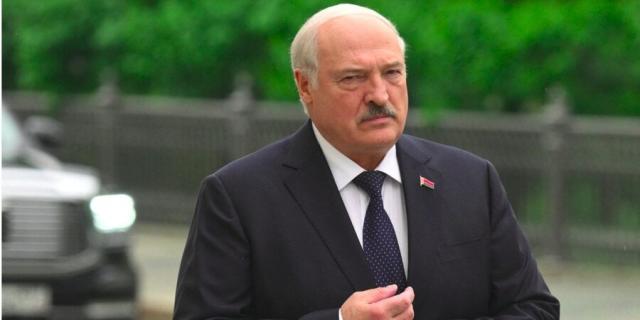
Israel’s new hypersonic defence system defies Russia and Iran’s ‘impossible’ boast
Israel is building the world’s first air defence system dedicated to shooting down hypersonic missiles in a major challenge to Russia and Iran, who have claimed that they are impossible to shoot down.
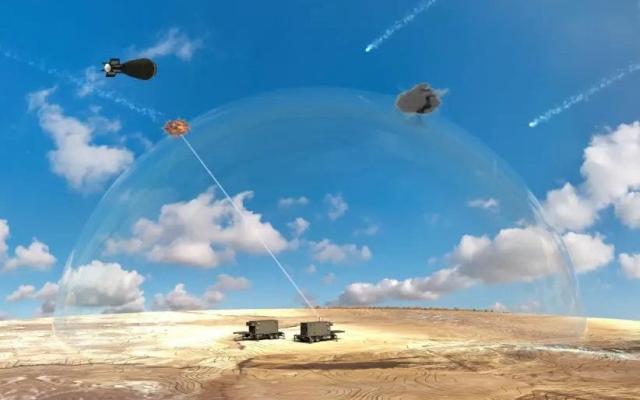
The Sky Sonic system will “enable us to intercept all kinds of hypersonic threats – hypersonic ballistic missiles, hypersonic cruise missiles,” Yuval Steinitz, the chairman of Rafael Advanced Defense Systems Ltd, told Reuters news agency.
A CGI video demonstration provided by Rafael showed an interceptor missile being fired from a ground battery. The interceptor’s warhead detaches itself and flew towards an incoming missile.
A Rafael spokesman said Sky Sonic would soon undergo flight tests but did not provide a schedule for when it might be ready. The Israeli military has not commented on the announcement, while the Pentagon has been briefed on the project according to Reuters.
The announcement hints at a potential new era of European air defence in which Israel – which is also selling Germany a £3 billion Arrow 3 interception tool – plays a major role.
However, as Sky Sonic is still being developed, and Israel remains reluctant to provide Kyiv with military support, it is unlikely that it will be deployed in Ukraine in the near future.
Both Russia and Iran have stepped up production of hypersonic missiles in recent months amid claims that they cannot be intercepted, in what could prove to be a major defence headache for Israel, Ukraine and their allies.
Tehran is also sending hundreds if not thousands of missiles and drones to Moscow for use against Ukraine, and in return is set to receive powerful Russian fighter jets which could be used by the regime to attack Israel.
“The war in Ukraine, and Russia’s use of Iranian drones there, has reshuffled European priorities and created new openings for deepening engagement with Israel,” said Hugh Lovatt, a senior Middle East analyst at the European Council on Foreign Relations.
“Faced with a new array of security challenges emanating from Russia, the EU and its member states now increasingly view Israel as an important security partner that can provide access to valuable military weaponry and cyber technology,” he added.
“For many European capitals, including strong supporters of Palestinian rights, national security interests are overriding concerns over Israel’s actions against Palestinians.”
Yehoshua Kalisky, a senior researcher at Israel’s Institute for National Security Studies, said: “Regarding the Russian hypersonic missiles, they operate effectively, but they are not ‘game changers’ as we can see from the results of the war during the last week. Their use looks to me like another vehicle used to destroy infrastructure or to hurt civilians.”
“About the Iranians, it looks that they carried out only ground tests – probably it is not operational yet,” he added.
Israel is increasingly concerned about Russia’s military support for Iran, but at the same time is resisting pressure from the United States to arm Kyiv, or at least grant the use of its powerful Iron Dome air defence system.
Benjamin Netanyahu, the Israeli prime minister, has privately complained to Vladimir Putin about his military support for Iran, the US news website Axios reported on Thursday.
Also on Thursday, the head of Germany’s defence committee approved a €3.99 billion (£3.34 billion) payment for Israel’s Arrow 3 air defence system, which will be able to shoot down missiles above the atmosphere and grant air cover to neighbouring EU member states.
The funds were drawn from Chancellor Olaf Scholz’s €100 billion defence package, which is aimed at bolstering German security in the wake of the Russian invasion of Ukraine.
Last week Iran, Israel’s arch-nemesis in the region, unveiled what it claimed was the regime’s first domestically produced hypersonic missile, dubbed the Fattah, which can supposedly fly at 15 times the speed of sound and strike Tel Aviv within 400 seconds.
Rafael is already well-known as the Israeli state-owned contractor behind the Iron Dome missile defence system capable of intercepting around 90 per cent of rockets launched at Israel from the Gaza Strip.
According to Israeli media reports, the country already has defence systems that should be capable of taking down hypersonic missiles, but none have been tailored to that threat specifically.
In response to the Iranian hypersonic missile being revealed last week, Yoav Gallant, the Israeli defence minister said “to any such development, we have an even better response,” without elaborating.
While Iran’s Fattah has not yet been used in battle, Russia reportedly fired six of its Kinzhal hypersonic missiles at Ukraine in May and all of them were intercepted, Ukrainian officials said, suggesting the weapon’s capabilities may have been exaggerated.
Chechen fighters sent to Russian border with Ukraine, leader Kadyrov says
Belgorod region has in the past month reported a series of cross-border incursions from pro-Ukraine Russian partisan groups calling themselves opponents of President Vladimir Putin. Kadyrov, a Putin ally who leads the Russian region of Chechnya, said that fighters from the "Zapad-Akhmat" battalion had been deployed near the border village of Nekhoteevka and a checkpoint in Graivoron district, the site of a cross-border attack in May.
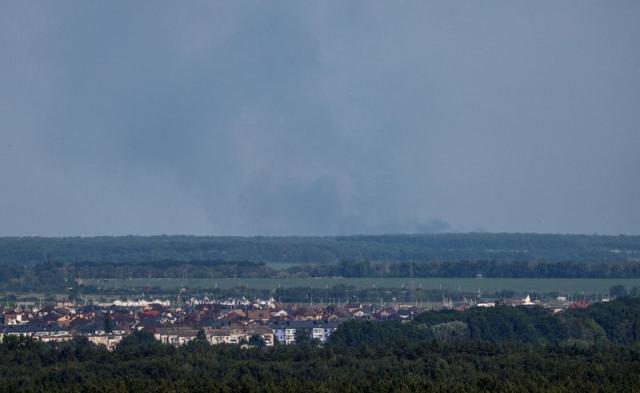
(Reuters) - Chechen fighters have been deployed in Russia's Belgorod region bordering Ukraine to prevent attacks from "Ukrainian sabotage groups", Chechnya ruler Ramzan Kadyrov said on Thursday.
Belgorod region has in the past month reported a series of cross-border incursions from pro-Ukraine Russian partisan groups calling themselves opponents of President Vladimir Putin.
Kadyrov, a Putin ally who leads the Russian region of Chechnya, said that fighters from the "Zapad-Akhmat" battalion had been deployed near the border village of Nekhoteevka and a checkpoint in Graivoron district, the site of a cross-border attack in May.
"Residents of the territories adjacent to the border with Ukraine can rest easy ... Whoever encroaches on our borders will receive a lightning response," Kadyrov said in a post on Telegram messaging app.
Ukraine denies involvement in the cross-border attacks, casting them as a direct consequence of Russia's February 2022 invasion.
(Reporting by Reuters; editing by Grant McCool)
North Korea Fires Ballistic Missiles, Warns the US on Drills
(Bloomberg) -- North Korea test-fired two short-range ballistic missiles Thursday in its first such launch in about two months, which came after it failed in late May to put a spy satellite into orbit. Most Read from BloombergSocial Security Benefits Targeted for Cuts by House ConservativesBiggest Losers of AI Boom Are Knowledge Workers, McKinsey SaysStock Rally Is Deepening Beyond AI-Fueled Craze: Markets WrapUS Submarine Damaged in South China Sea Won’t Return Until 2026 as Shipyards Are Clogg
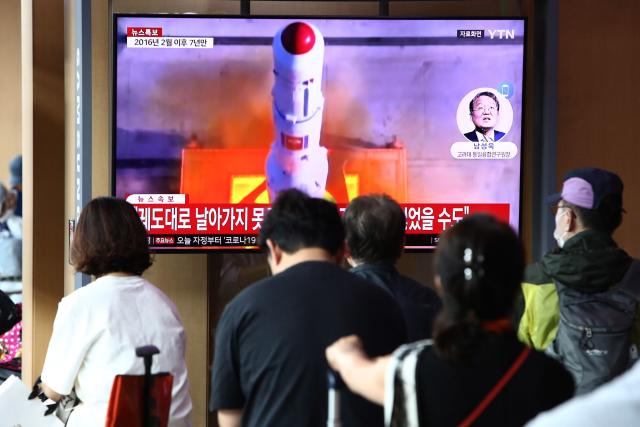
(Bloomberg) -- North Korea test-fired two short-range ballistic missiles Thursday in its first such launch in about two months, which came after it failed in late May to put a spy satellite into orbit.
Most Read from Bloomberg
The missiles were launched as the US and South Korea ended live-fire drills this week near the border with North Korea, which were overseen by South Korean President Yoon Suk Yeol and drew the ire of Kim Jong Un’s regime. Pyongyang’s official Korean Central News Agency quoted a Defense Ministry spokesman as denouncing the military exercises and issuing a threat, in a dispatch that coincided with the launch.
“Our army strongly denounces the provocative and irresponsible moves of the puppet military authorities,” KCNA cited the official as saying. “Our armed forces will fully counter any form of demonstrative moves and provocation of the enemies.”
The missiles were fired at about 7:25 p.m. and 7:37 p.m. from near Pyongyang’s international airport toward waters off the east of the peninsula, South Korea’s Joint Chiefs of Staff said. At least one projectile likely splashed down in Japan’s exclusive economic zone, a Defense Ministry official told reporters in Tokyo
Each missile flew about 780 kilometers (485 miles), South Korea’s Joint Chiefs of Staff said. Japanese Prime Minister Fumio Kishida told reporters his country lodged a protest and added there was no reported damage to vessels in the area.
The live-fire drills Thursday included more than 2,500 South Korean and US soldiers using advanced weapons systems including self-propelled artillery and F-35A fighter jets. “Genuine peace is not a fake one that relies on the goodwill of the enemy but one that relies on our own strength to protect our national security,” Yoon said at the exercises.
Pyongyang has fired 19 ballistic missiles so far this year, including three intercontinental ballistic missiles designed to deliver a nuclear warhead to the US mainland. The country fired off more than 70 ballistic missiles last year, a record for the state.
The national security advisors of the US, Japan and South Korea issued a joint statement Thursday condemning North Korea’s launches as “clear violations of multiple United Nations Security Council resolutions” and said they show the threat the “unlawful weapons of mass destruction and ballistic missile programs pose to the region, international peace and security and the global non-proliferation regime.”
On May 31, North Korea conducted its first launch of a space rocket in about seven years, which failed shortly after launch and broke apart in the Yellow Sea.
Although North Korea said it was trying to put a spy satellite into orbit and had the right to do so as part of a space program, Japan, South Korea and the US condemned the launch, saying it violated United Nations resolutions by employing technology used for ICBMs.
Kim’s regime has been modernizing its missile arsenal over the past few years, rolling out models that are quick to deploy and designed to evade US-operated interceptors. The North Korean leader has been trying to increase his ability to deliver a credible strike on the US mainland and on the two allies who host the bulk of America’s military personnel in the region — South Korea and Japan.
President Joe Biden has warned North Korea that a nuclear attack on the US and its allies would be the end of Kim’s regime. Biden issued the warning in April, when he hosted Yoon at the White House. They announced new efforts to counter Pyongyang’s nuclear buildup and a plan to deploy US nuclear-armed submarines to South Korea for the first time in decades.
Read More: Six Takeaways from White House Visit by South Korea’s Yoon
On April 13, North Korea tested a new type of solid-fuel ICBM, with leader Kim on hand. A solid-fuel missile increases the scope for launching from a hardened underground silo with little warning. Liquid-fuel missiles generally take more time to prepare, giving off signs to spy satellites that a launch is imminent.
In late March, North Korea released photos of Kim inspecting the state’s biggest display of warheads since he took power about a decade ago, indicating the leader has no intention of abandoning his atomic arsenal. Weapons experts said the images indicate Pyongyang has made progress in miniaturizing its warheads and could lead to more testing to verify their capabilities.
North Korea has demonstrated its missiles can fly as far as the US, but there are questions as to whether the warheads would be able to stay intact to reach their targets.
At a meeting of their defense ministers in Seoul in late January, the US and South Korea pledged to step up their joint exercises. The drills had been scaled down or halted under former President Donald Trump, who was hoping the move would facilitate his nuclear negotiations with the North Korean leader.
Those talks produced no concrete steps to wind down Pyongyang’s nuclear program, which has only grown larger as disarmament talks sputtered.
North Korea has responded with shows of force when Japan has joined some of the drills that have included the US and South Korea.
--With assistance from Eunkyung Seo and Go Onomitsu.
(Updates with US-Japan-South Korea joint statement in eighth paragraph)
Most Read from Bloomberg Businessweek
©2023 Bloomberg L.P.
Iran, Cuba vow to confront US 'aggressive imperial policy'
The presidents of Iran and Cuba vowed Thursday to jointly confront the "aggressive imperial policy" of the United States, which has sanctions in place against both countries.Apart from sanctions, the United States also has Cuba and Iran on its list of state sponsors of "terrorism."
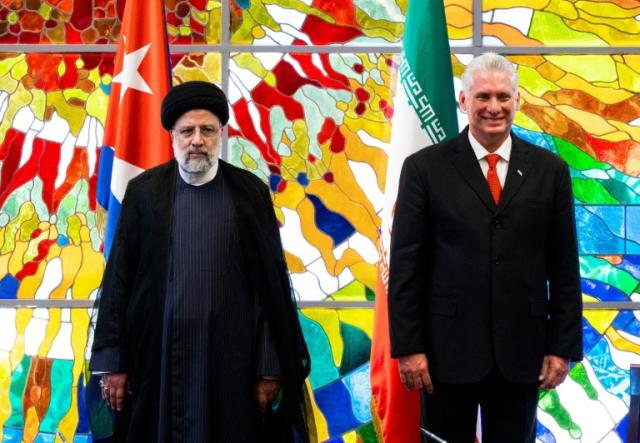
The presidents of Iran and Cuba vowed Thursday to jointly confront the "aggressive imperial policy" of the United States, which has sanctions in place against both countries.
Hosting his counterpart Ebrahim Raisi in Havana, President Miguel Diaz-Canel said both nations "have had to face heroically, with tenacious resistance, the sanctions, the pressures, the threats, the blockades and the indifference of US imperialism and its allies."
Apart from sanctions, the United States also has Cuba and Iran on its list of state sponsors of "terrorism."
The men presided over the signing of memoranda on cooperation in areas including customs, telecommunications and justice.
In the morning, Raisi had attended a business forum where he said Iran would work with communist Cuba in science and technology, on hydroelectric and thermoelectric plants, and mining.
The Iranian president's official visit to Cuba closed a tour of "friendly countries" that also included US-sanctioned Nicaragua and Venezuela, that share what he called "common enemies."
All are allies of Russia, which is waging a war on Ukraine.
In Venezuela, Raisi and Nicolas Maduro said they had signed 25 accords in sectors ranging from education and health to mining.
Deepening trade and exchange was also on the agenda in Nicaragua, whose President Daniel Ortega said the leaders had signed a "basic memorandum" that will seek to boost economic, commercial and scientific-technical cooperation.
Ortega has said that Tehran has a right to use nuclear energy for peaceful purposes, and in February questioned the moral authority of Western powers to ban Iran from having nuclear weapons.
lp/mlr/tjj
North Korea fires two short-range ballistic missiles
North Korea fired two short-range ballistic missiles, South Korea's military said Thursday, shortly after Pyongyang warned of an "inevitable" response to ongoing US-South Korea joint military drills.Seoul's Joint Chiefs of Staff said it had detected the launch of "two short-range ballistic missiles from the Sunan area into the East Sea between 19:25 and 19:37 (1025 to 1037 GMT)," referring to the body of water also known as the Sea of Japan.
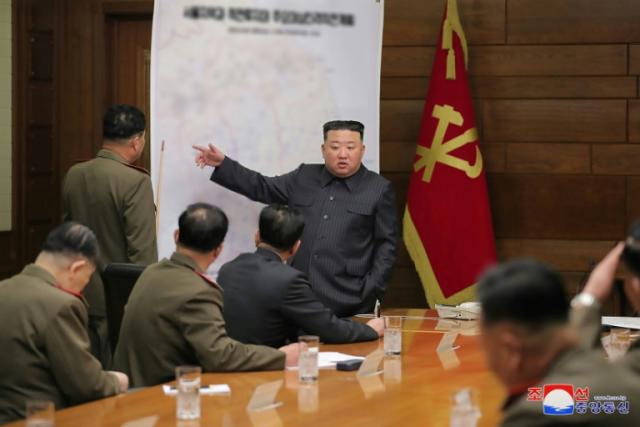
North Korea fired two short-range ballistic missiles, South Korea's military said Thursday, shortly after Pyongyang warned of an "inevitable" response to ongoing US-South Korea joint military drills.
South Korea and the United States, which have ramped up defence cooperation in response to growing threats from the nuclear-armed North, are currently carrying out joint large-scale live-fire "annihilation" exercises.
Seoul's Joint Chiefs of Staff said it had detected the launch of "two short-range ballistic missiles from the Sunan area into the East Sea between 19:25 and 19:37 (1025 to 1037 GMT)," referring to the body of water also known as the Sea of Japan.
"We have stepped up monitoring in case of further provocations and are maintaining readiness in close coordination with the United States," the military said.
Tokyo also confirmed the missile launches, with a defence ministry official telling reporters that the two missiles had landed in waters within Japan's exclusive economic zone.
"The missiles may have flown on irregular trajectories," Japan's top government spokesman Hirokazu Matsuno told reporters, adding that one had flown 850 kilometres (530 miles) and the other around 900 kilometres at altitudes of 50 kilometres, before landing in Japan's EEZ.
In a joint statement, the United States, South Korea and Japan condemned the launches, saying they violated UN Security Council resolutions and demonstrate the threat "unlawful weapons of mass destruction and ballistic missile programs pose to the region."
And in a separate move, Washington on Thursday imposed sanctions against two North Koreans based in Beijing over their alleged connection to Pyongyang's weapons program.
"The DPRK's development of its missile programs directly threatens regional and international security, and the United States will continue to take action to curtail activities in support of those programs," State Secretary Antony Blinken said in a statement, using the acronym for North Korea's official name.
- 'Inevitable' response -
Relations between the two Koreas are at one of their lowest points in years, with diplomacy stalled and the North's leader Kim Jong Un declaring his country an "irreversible" nuclear power, as well as calling for ramped-up weapons production, including of tactical nukes.
North Korea has conducted multiple sanctions-busting launches this year, including test-firing its most powerful intercontinental ballistic missiles, and last month attempting to put a military spy satellite into orbit.
In response, the hawkish administration of South Korean President Yoon Suk Yeol has bolstered defence cooperation with the United States and Japan, including expanding joint drills, which had been scaled back because of Covid-19, and during a bout of ill-fated diplomacy.
Yoon personally watched South Korean and US troops take part in the live-fire exercises Thursday.
All such drills infuriate Pyongyang, which regards them as rehearsals for invasion.
North Korea slammed the drills, saying they were escalating military tensions in the region.
"Our response to this is inevitable," the defence ministry said in a statement Thursday carried by the official Korean Central News Agency. "Our armed forces will fully counter any form of demonstrative moves and provocation of the enemies."
- Lawsuit -
On Wednesday, South Korea filed a lawsuit seeking damages from North Korea for the 2020 demolition of a liaison office.
The office was established in 2018 with funding from Seoul at an industrial zone near the border in North Korean territory, as South Korea's then-president Moon Jae-in pressed for a diplomatic breakthrough with Pyongyang.
But after that process collapsed and relations deteriorated, North Korea demolished the building in June 2020.
Seoul describes the demolition as a "clearly an illegal act" and is seeking 44.7 billion won ($35 million) in damages.
North Korea is likely to ignore any ruling by the court, but there is precedent in South Korea and the United States for damages being awarded against its government.
"Given the timing, the launch seems like the North's expression of discontent or protest at Seoul's legal action seeking compensation (for) the North's demolition of the Kaesong office," Choi Gil-il, professor of military studies at Sangji University, told AFP.
kjk/ceb/lb/md/dw
Lukashenko to be tried in The Hague for same crimes as Putin, says Ukrainian ex-envoy to Belarus
Belarusian dictator Alexander Lukashenko will be tried in The Hague for the same crimes as his Russian counterpart, Vladimir Putin, former Ukrainian Ambassador to Belarus Roman Bezsmertnyi told Radio NV on June 14.
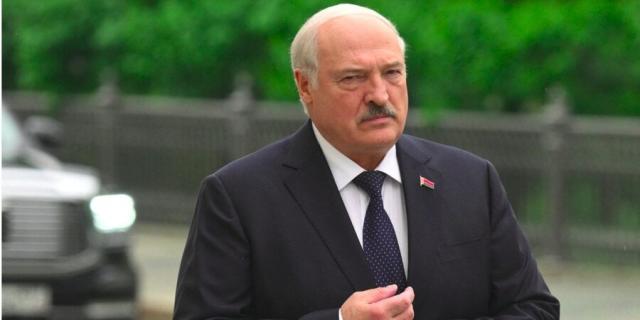
“Regarding what warrants will be issued for arrest, detention and charges, I see no difference between Putin or Lukashenko’s crimes,” he said.
“And they will both answer as allies and organizers of aggression against Ukraine.”
Both Putin and Lukashenko will be held accountable for both crimes against their own people and crimes against Ukrainians, as they have unleashed a war that has been going on for 10 years, using their information sources to fool the world, the diplomat believes.
In response to a request to list the crimes for which Lukashenko should be held accountable, Bezsmertnyi said: “Such crimes that concern children, followed by rape and torture.”
“This is not a complete list of those included in this block of crimes against humanity. And in fact, the topic of crimes against children always sounds against women as well, they always sound in the first place. And in fact, why is this topic being raised now? Because the level of evidence for it in both cases, both against Putin and Lukashenko, is the highest. The reason is that when committing these crimes, both of them did not realize that the level of international criminal responsibility and the inquiry procedure in this regard are elementary in nature.”
She recalled a report which documented the deportation of Ukrainian children not only to Russia but also to Belarus. Therefore, in her opinion, the International Criminal Court should treat Lukashenko the same way it does Putin and the children’s ombudsman of the Russian Federation, Maria Lvova-Belova.
0 Likes
